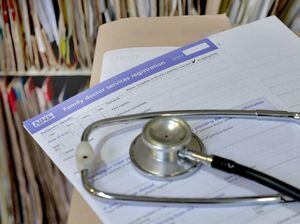Rise in written complaints to Telford GPs and dentists - but figure falls for rest of Shropshire
The number of written complaints to GP and dental practices in Telford & Wrekin has almost doubled in the past two years, according to NHS data.

A total of 470 written complaints were received between April 2017 and March 2018, compared with 237 the previous year.
The number fell slightly from 443 in 2016/17 to 401 in 2017/18 in Shropshire.
Medical experts say that there are many factors that could cause complaint numbers to vary year-on-year.
Telford & Wrekin Clinical Commissioning Group (CCG) says the increase in the number of complaints in its area could to be attributed to "improved reporting of complaints in practice".
Spokesman Richard Caddy said: “Some practices have received support from the CCG complaints team on the management of the complaint process hence the potential for an increase in the numbers.
"This increase in capture is seen as a positive as this is an area where lessons can be learned and improvements can be made.”
Shropshire CCG says it is good news that the overall number of complaints are reducing in its area, despite the increasing pressures on GP practices.
Nicky Wilde, director of primary care at the CCG, said: “All of our practices take patient complaints seriously and work hard to ensure that they use them wherever possible to improve the services they offer.
"As a CCG, we continue to support practices with complaints whenever it is required.”
Guidance
In Telford and Wrekin, 47 per cent of the 451 complaints that were dealt with in 2017/18 were upheld, meaning that evidence was found to support the complaint and an admission was made by the practice.
A further 16 per cent of the resolved complaints were partially upheld.
During the same period in Shropshire, 34 per cent of the 362 complaints that were dealt with were upheld and 13 per cent partially upheld.
According to guidance from the British Medical Association, a complaint can be made by a patient, or anyone affected by the action, omission or decision of the practice that led to the complaint.
Complaints can be made about any person working in the primary care practice, from the GPs themselves to admin staff and receptionists.
In recent years there has been an effort to make patients more aware of ways in which their views can be heard, including information on how the complaints procedure works.
Written complaints can be made about any issue, ranging in seriousness from a broken doorbell to allegations of malpractice.
Across England the number of recorded written complaints rose by four per cent, from just over 90,000 in 2016/17 to nearly 95,000 the following year.
The BMA said that while the rise in the number of complaints made against GPs nationwide was disappointing, it should be looked at in the context of the rapidly rising number of consultations that GPs provide.
NHS England said that it was working hard to help drive up the standards of complaints handling in primary care.





